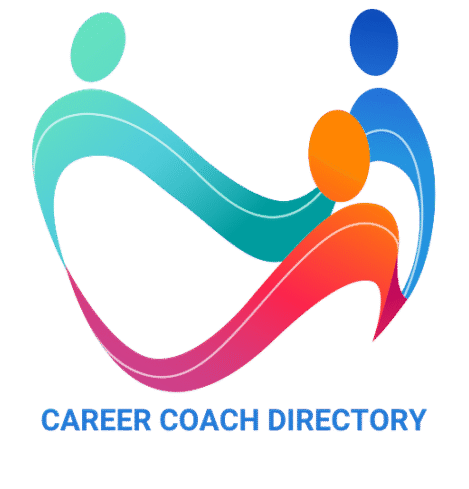
Career Transition Coaching
Career Transition Coaching Strategies for Successful Job Changes
Career transition coaching helps individuals move smoothly from one career path to another by providing structured guidance and personalized strategies. It focuses on identifying strengths, transferable skills, and opportunities that align with the person’s goals and market demands. This coaching is especially valuable when facing uncertainty or significant changes in professional life.

Coaches work closely with clients to clarify career objectives, explore new industries or roles, and address emotional challenges often linked to change. Their support extends beyond practical advice, helping clients build confidence to make informed decisions. Readers will learn how these coaches assist in creating actionable plans for successful career shifts.
Understanding how career transition coaching can help reduces the stress that often accompanies change. It also shows how leveraging expert insight can speed up the process and improve outcomes, making transitions less daunting and more achievable.
Key Takeaways
- Career transition coaching identifies and builds on transferable skills.
- It provides emotional support alongside practical career planning.
- Choosing the right coach can significantly impact the success of a career change.
What Is Career Transition Coaching?

Career transition coaching focuses on guiding individuals through job changes, shifts in roles, or new industries. It involves practical strategies to manage uncertainties, identify opportunities, and develop skills tailored to evolving career paths.
Defining Career Transition Coaching
Career transition coaching is a targeted service aimed at helping people navigate changes in their professional lives. Coaches work with clients to clarify goals, assess strengths, and build action plans specific to the transition phase.
The process often includes personalized assessments, skill gap analyses, and support in networking or resume refinement. Coaches provide accountability and motivation during the sometimes-challenging period of change.
This coaching differs from general career advice by concentrating on the unique challenges someone faces when leaving one role or sector and preparing for another.
Career Transition Coaching vs. Traditional Career Counseling
Traditional career counseling typically focuses on long-term career planning, personality tests, and educational guidance. It often serves students or early-career professionals deciding on a path.
Career transition coaching, in contrast, addresses immediate, practical issues like job searching, interview preparation, and adapting to new industries or work environments. The approach is action-driven with a focus on results within a short timeframe.
Clients receive hands-on tools and strategies rather than broad suggestions. Coaches may integrate techniques from business, psychology, and human resources to expedite successful job transitions.
Who Can Benefit from Career Transition Coaching?
Individuals changing industries, returning to work after a break, or seeking promotions often find career transition coaching valuable. It suits anyone facing uncertainty about next steps or struggling with confidence or skill gaps.
Executives moving to a different sector or professionals affected by layoffs can gain clarity and direction through coaching. The process also helps those exploring entrepreneurship or freelance careers to align skills and goals.
Organizations sometimes provide transition coaching to support employees during restructuring, ensuring smoother career shifts and retention of talent.
The Career Transition Coaching Process

Career transition coaching is structured around clear stages that guide clients methodically through change. It involves assessing individual needs, creating tailored plans, and regularly reviewing progress to ensure alignment with evolving goals.
Initial Assessment and Goal Setting
The process starts with a thorough evaluation of the client’s current situation, including skills, work history, values, and motivations. The coach uses interviews, assessments, and self-reflections to gather this information.
Next, specific career objectives are defined. These goals are realistic, measurable, and time-bound to provide clear direction. The coach and client prioritize immediate needs and long-term ambitions, setting benchmarks for later stages.
This phase establishes a foundation for all subsequent actions, ensuring coaching efforts focus on relevant challenges and opportunities.
Developing a Personalized Transition Plan
Based on the initial assessment, a detailed plan is created to navigate the career change. This plan outlines actionable steps such as skill development, networking strategies, and job search tactics.
It also includes timelines and resource recommendations tailored to the client’s strengths and market conditions. The plan may address gaps like resume building, interview preparation, or digital presence.
By customizing the approach, the coach helps the client efficiently bridge from their current role to the desired career outcome.
Continuous Feedback and Progress Evaluation
Ongoing communication is critical to maintain momentum and adapt the transition plan as needed. Regular sessions allow the coach to review accomplishments, challenges, and market feedback with the client.
The coach uses tools like progress tracking sheets and milestone check-ins to measure success against goals. Adjustments are made when obstacles arise or goals evolve.
This continuous loop helps the client stay accountable and ensures the transition remains aligned with their career aspirations.
Key Services Offered by Career Transition Coaches
Career transition coaches help individuals identify new career paths, sharpen job application materials, develop effective job search techniques, and prepare thoroughly for interviews. They provide targeted support tailored to the client’s unique background and goals.
Career Exploration and Direction
Career transition coaches guide clients through a process of identifying strengths, interests, and transferable skills. They use assessments, interviews, and discussions to clarify career goals based on the client’s values and market demand.
This service often includes researching potential industries and roles, helping clients understand job requirements, and building a realistic plan for entering a new field. Coaches assist in setting actionable milestones and timelines for career shifts.
Clients gain greater awareness of options they may not have considered and develop confidence in choosing a direction that aligns with both their skills and lifestyle preferences.
Resume and LinkedIn Profile Optimization
Coaches review and enhance resumes to highlight relevant accomplishments and keywords specific to target industries. They ensure formatting is clear, concise, and tailored to applicant tracking system (ATS) standards.
For LinkedIn, coaches optimize profiles to increase visibility and professional appeal. This includes rewriting headlines, summaries, and experience sections to reflect the client’s career goals and expertise.
They also advise on strategic networking tactics using LinkedIn features, such as joining groups and engaging with industry content, to improve job prospects.
Job Search Strategies
Career transition coaches help clients develop customized job search plans that focus on realistic opportunities within their target industries. They emphasize quality over quantity, encouraging targeted applications to roles matching the client’s skills.
Coaches guide clients on leveraging networks, including cold outreach and informational interviews. They also provide techniques for managing job search progress and staying motivated.
Time management advice and tools to track applications help clients maintain organized, efficient job searches.
Interview Preparation
Interview Coaches conduct mock interviews tailored to specific roles to build client confidence. They provide feedback on verbal and nonverbal communication, question structuring, and presentation skills.
Clients receive targeted coaching on answering behavioral, technical, and situational questions. Coaches help craft compelling stories using frameworks like STAR (Situation, Task, Action, Result).
They also prepare clients to negotiate job offers by discussing salary ranges, benefits, and other compensation aspects.
Emotional and Psychological Support
Career transition coaching addresses both the mental and emotional challenges faced during change. It focuses on managing stress related to uncertainty and developing the strength needed to adapt.
Managing Uncertainty and Stress
Uncertainty in career transitions can cause anxiety, self-doubt, and decision paralysis. Coaches help clients identify specific sources of stress and develop coping strategies tailored to their situation.
Techniques often include mindfulness practices, structured planning, and breaking large tasks into manageable steps. This helps reduce overwhelm and maintain focus.
Setting realistic expectations and maintaining a steady routine supports emotional stability. Coaches also encourage clients to seek support networks, such as peers or mentors, to share concerns and gain perspective.
Building Resilience During Transition
Resilience allows individuals to recover from setbacks and stay motivated. Coaches work on strengthening this by fostering a growth mindset and reinforcing problem-solving skills.
They guide clients in reflecting on past successes and lessons learned to build confidence. Structured goal-setting creates measurable progress, enhancing motivation.
Practices such as self-compassion and positive reframing help maintain mental well-being. Developing resilience enables smoother adjustment to new roles and environments.
Identifying and Leveraging Transferable Skills
Knowing which skills can apply across different industries is essential for a successful career change. Understanding these abilities and effectively presenting them strengthens a candidate’s marketability in new fields.
Recognizing Your Core Strengths
Identifying transferable skills begins with reviewing past roles to pinpoint consistent competencies. These might include project management, communication, leadership, or problem-solving—skills valuable across many jobs.
A practical method is creating a skills inventory. This list categorizes abilities into technical skills, interpersonal skills, and organizational skills to highlight versatility.
For example:
| Skill Category | Examples |
|---|---|
| Technical | Data analysis, coding |
| Interpersonal | Negotiation, teamwork |
| Organizational | Time management, planning |
Recognizing patterns in these areas helps clarify which strengths will benefit the next career stage.
Communicating Skills to Potential Employers
Articulating transferable skills clearly can differentiate a candidate during job applications. They should tailor resumes to emphasize relevant skills aligned with the new role’s requirements.
Using action verbs and quantifiable results strengthens impact. For example: “Led a team of five to deliver projects 15% ahead of schedule,” shows leadership and efficiency.
During interviews, candidates should connect past experiences to the prospective job. Explaining how skills like customer service or analytical thinking apply to the new industry demonstrates adaptability.
Formatting techniques, such as bullet points and bolding keywords, help recruiters quickly identify these competencies.

Navigating Industry or Role Changes
Successfully changing industries or roles demands targeted preparation and strategic adjustments. Identifying transferable skills, understanding new environments, and redefining professional identity are critical steps.
Transitioning to a New Industry
The first challenge in switching industries is recognizing transferable skills. Professionals should map their existing abilities to the needs of the new sector. Research on industry trends, key players, and required certifications supports this effort.
Networking plays a vital role. Connecting with insiders offers insights and uncovers opportunities. Tailored resumes emphasizing relevant experience increase the chance of interview invitations.
Continuous learning is essential. Taking courses or earning certifications tailored to the new field demonstrates commitment and bridges knowledge gaps. A realistic timeline helps manage expectations during this shift.
Transitioning from Military to Civilian Life
Military service members face one of the most challenging career transitions when returning to civilian life. After years of structured military environment, clear hierarchies, and mission-focused objectives, the civilian job market can feel overwhelming and unfamiliar. Service personnel often struggle with translating their valuable military skills into civilian terms that employers understand. Leadership experience, crisis management abilities, team coordination skills, and discipline are incredibly valuable to employers, yet many veterans find it difficult to articulate these strengths in ways that resonate with hiring managers who have never served.
The Hidden Challenges of Military Transition
Beyond the obvious task of finding employment, military personnel transitioning to civilian life face unique psychological and professional hurdles. Many experience a loss of identity after leaving the camaraderie and clear purpose that military service provides. The civilian workplace operates differently – with less structure, different communication styles, and workplace cultures that can feel foreign. Veterans may also struggle with imposter syndrome, wondering if their military experience truly translates to civilian success. Additionally, many face the challenge of pursuing education while job searching, managing family responsibilities during transition, and dealing with potential service-related health issues that impact their career choices.
How a Specialized Career Coach Can Transform the Transition
A career coach who understands military transition brings invaluable expertise to this complex process. They help veterans decode their military experience into powerful civilian career assets, teaching them how to communicate their leadership, problem-solving, and technical skills in language that civilian employers appreciate. These coaches provide crucial support in navigating civilian workplace dynamics, interview preparation, salary negotiations, and long-term career planning. Most importantly, they offer accountability and encouragement during what can be an emotionally challenging time, helping veterans rebuild their professional identity and confidence. With the right coaching support, military personnel can leverage their unique strengths to not just find jobs, but launch fulfilling civilian careers that utilize their exceptional training and experience.
Moving from Employment to Entrepreneurship
Shifting from a traditional job to starting a business requires a mindset change. Entrepreneurs must develop skills in business planning, marketing, and financial management.
Creating a detailed business plan clarifies objectives and potential challenges. Early financial planning protects against cash flow issues. Seeking mentors with entrepreneurial experience guides practical decision-making.
Risk tolerance varies; therefore, gradual transition options like freelancing or side projects can reduce pressure. Legal and tax consultations should not be overlooked before launching a new venture.
Shifting to Leadership Roles
Advancing into leadership involves more than seniority. It requires enhanced communication, delegation, and strategic thinking.
Effective leaders build trust and motivate teams. Developing emotional intelligence and conflict resolution skills supports this aspect.
They must also understand organizational goals deeply to align team efforts with company strategy. Coaching can help refine these abilities and prepare individuals for managing broader responsibilities.
Choosing the Right Career Transition Coach
Selecting an effective career transition coach requires attention to their qualifications and coaching techniques. Identifying coaches who combine relevant experience with a compatible coaching approach helps ensure productive guidance.
Credentials and Experience to Look For
A qualified career transition coach should hold certifications from recognized organizations such as the International Coach Federation (ICF) or the Career Development Network. These credentials demonstrate a standard of professionalism and adherence to ethical practices.
Experience in specific industries or career stages enhances a coach’s effectiveness. For example, those who have helped professionals move from corporate roles to entrepreneurship offer specialized insights.
Clients should verify a coach’s track record through testimonials or case studies. A strong history of successful client transitions indicates practical competence beyond formal qualifications.
Evaluating Coaching Styles and Methods
Career transition coaches use diverse methods, including assessment tools, goal-setting frameworks, and accountability systems. Effective coaches tailor these tools to the individual’s needs rather than applying a generic plan.
Some coaches emphasize actionable, step-by-step strategies, while others focus on mindset shifts and personal development. Understanding whether a coach prioritizes practical tactics or psychological support is crucial for alignment with client preferences.
Trial sessions or initial consultations provide a chance to observe communication style, responsiveness, and overall compatibility. Clear expectations about session frequency and support mechanisms contribute to a transparent coaching relationship.
Success Stories and Outcomes
Career transition coaching can lead to tangible improvements in job satisfaction, role clarity, and income. Individual examples and objective measures show how coaching helps clients navigate career changes effectively.
Real-World Examples of Career Transitions
One client shifted from a stagnant corporate role to entrepreneurship within six months, gaining both flexibility and a 30% increase in income. Another individual moved from retail management to a tech sales position after coaching focused on skill translation and interview preparation.
Clients often report renewed confidence and clearer career directions. Some have successfully pivoted into entirely new industries by identifying transferable skills. Customized action plans and ongoing support were key factors in their transitions.
Measuring the Impact of Coaching
Outcome measurement typically includes metrics like time to employment, salary increase, and job satisfaction. On average, coached clients secure new roles within three to five months, compared to six to twelve months for those without coaching.
Surveys show 75% of participants report improved confidence and career clarity post-coaching. Coaches track progress through goal completion and periodic feedback. Quantitative data combined with qualitative client reflections provides a comprehensive view of coaching effectiveness.
Common Challenges During Career Transitions
Career transitions often involve mental and emotional hurdles as well as external obstacles. Individuals must navigate internal doubts while managing how to respond to rejection and setbacks. Both require specific strategies to maintain momentum and focus.
Overcoming Self-Doubt
Self-doubt frequently arises when professionals leave familiar roles for new fields. It can manifest as worry over skill gaps or uncertainty about fitting into a different industry. Recognizing these doubts early helps create a plan to address them.
Practical steps include setting small, achievable goals to build confidence. They should track progress and celebrate milestones to reinforce their capabilities. Seeking feedback from mentors or coaches provides external validation and guidance.
Using positive self-talk and reframing failures as learning experiences reduces negative thinking. Over time, consistent action diminishes self-doubt by replacing fear with evidence of competence.
Dealing with Rejection and Setbacks
Rejection is common during job applications, interviews, or networking when shifting careers. It can cause frustration or loss of motivation if not managed properly.
To handle rejection, individuals can keep a log of responses to identify patterns or areas for improvement. They must remember that rejection often reflects external factors, not personal merit.
Setbacks like missed promotions or failed projects require resilience. Breaking challenges into smaller, manageable tasks helps maintain progress. Developing a support system through peers or professionals also aids recovery from discouragement.
By approaching rejection and setbacks methodically, individuals avoid prolonged downtime and remain focused on their career goals.
Future Trends in Career Transition Coaching
Technology will play an increasing role in career transition coaching. Virtual reality (VR) and augmented reality (AR) tools are being developed to simulate job environments and interview scenarios, providing hands-on practice for clients.
Artificial intelligence (AI) is also shaping coaching. AI-powered platforms can analyze career data to offer personalized advice and match clients with suitable roles faster than traditional methods.
Coaches are expected to incorporate more data-driven insights. Tracking client progress through metrics will help tailor plans and measure success more effectively.
There is a growing emphasis on holistic coaching. Mental health, work-life balance, and emotional resilience are becoming integral to career planning beyond skills and job searching.
Remote coaching continues to expand. Online platforms allow coaches to reach clients regardless of location, increasing accessibility and convenience.
| Trend | Impact | Example |
|---|---|---|
| Virtual & Augmented Reality | Enhanced job simulation and preparation | VR mock interviews |
| Artificial Intelligence | Personalized advice and faster job matching | AI career assessment tools |
| Data-Driven Coaching | More precise progress tracking | Performance metrics dashboards |
| Holistic Approach | Focus on emotional and mental well-being | Stress management coaching |
| Remote Coaching | Broader access and flexibility | Video calls, digital platforms |
Frequently Asked Questions
Career transition coaching involves specific tasks like skill assessment, goal setting, and networking strategies. Measuring outcomes depends on factors such as client progress, satisfaction, and achievement of career goals.
What are the core responsibilities of a career transition coach?
They assess clients’ skills and interests to help define career goals.
They provide guidance on resume writing, interview preparation, and job search techniques.
They support networking efforts and help clients navigate career changes smoothly.
How can one evaluate the effectiveness of career coaching services?
Tracking goal achievement and client satisfaction rates is essential.
Feedback from previous clients and measurable career advancements indicate coaching success.
Consistency in meeting agreed milestones also reflects program quality.
What criteria should I use to select a career transition coach?
Look for relevant experience in the client’s industry or career stage.
Verify coaching certifications from recognized organizations.
Check client testimonials and alignment with coaching style preferences.
What is the typical cost range for hiring a career transition coach?
Fees commonly range from $75 to $300 per hour.
Some coaches offer packages that may lower the hourly rate.
Costs vary based on coach experience and location.
What qualifications should a reputable career transition coach have?
Certification from bodies such as the International Coach Federation (ICF) is preferred.
Experience with resume development, interviewing techniques, and career planning is important.
Higher education degrees related to counseling or human resources can be valuable.
Are there any measurable benefits to working with a career transition coach?
Clients often report faster job placements and improved interview performance.
Career clarity and enhanced confidence are frequently cited benefits.
Certain clients see increased salary offers and better job matching.
To find Career Coaches near you, go to https://careercoachdirectory.com/find-career-coaches-near-you/
Go to our YouTube channel https://www.youtube.com/watch?v=nb6khR51s0U&t=4s

